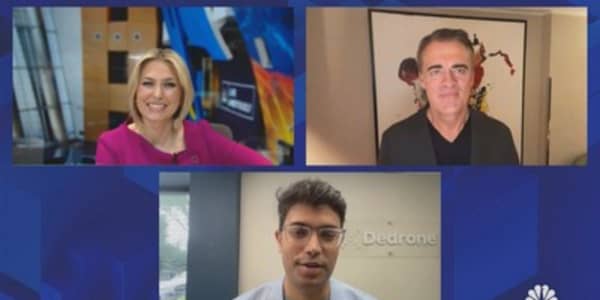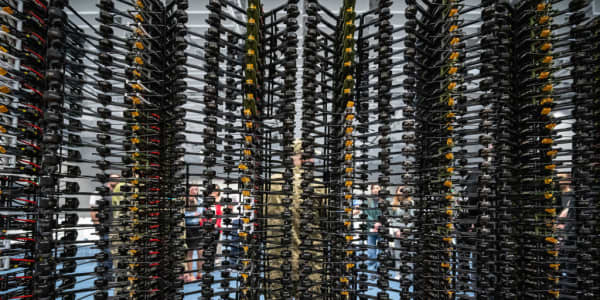Any of the 5 million people who've gotten a home DNA test from Alphabet-backed 23andMe will learn a lot more about their origins this week.
On Wednesday, the company updated its $99 genealogy test to include more countries, which is far more specific than regions. So rather than learning that you're a little bit Eastern European, 23andMe will inform you that you're 10 percent Romanian or Polish, for instance.
The update will include 120 new regions across the globe.
The product will be a lot more interactive, so users can zoom into their ancestors' geographic regions on a map.
"We've asked a lot of customers where they're from and this has allowed us to build up a database of genetic diversity," said Robin Smith, 23andMe's product manager.
In a phone interview, Smith said that 23andMe uses machine learning to develop its algorithm, which is getting smarter over time at surmising people's roots.
In addition to ancestry, 23andMe has been working with the U.S. Food and Drug Administration to provide information about its users' health risks, including screening for genes associated with Alzheimer's risk. That health information costs an additional $100 to access.
It also shows the percentage of Neanderthal ancestry, which is intended to be a fun feature that helps set it apart from dozens of other tests.
Its biggest competitor, Ancestry.com, also offers a DNA-testing service.
No exact science
Ancestry testing is no exact science.
DNA-testing companies determine where your genes are from by comparing you to other users who are known to have ancestors from that region. 23andMe said the user will need to exactly match with five or more people who have ancestors from those countries.
In other words, data about your heritage are determined by comparing users to a reference database of other users. And each company has its own proprietary algorithm and data set.
For that reason, some people have been getting varied results from the different testers whether it's AncestryDNA, 23andMe or National Geographic, which offers its test through a company called Helix.
All of these companies lack data from Africa and Asia, where fewer people have gotten a DNA test. Smith said 23andMe has efforts underway to rectify that, such as its African Genetics Project that is designed to recruit people from sub-Saharan Africa.
There's also the problem of history. The United Kingdom, for instance, has seen invasions from the Normans in France, the Vikings in Scandinavia and other countries going back generations.
"It's complicated," Smith admits, and no map is perfect.
But the company said it's confident in its accuracy compared to other tests. "We're being conservative in our calls," he said.
Customers who buy the test this week will have immediate access to the new data, and existing users can access it over the coming weeks, the company said.






